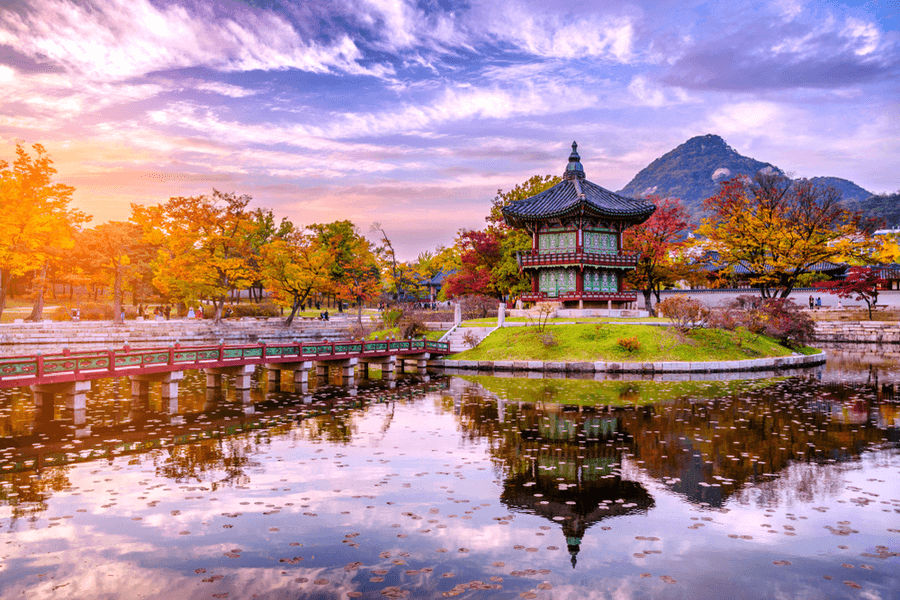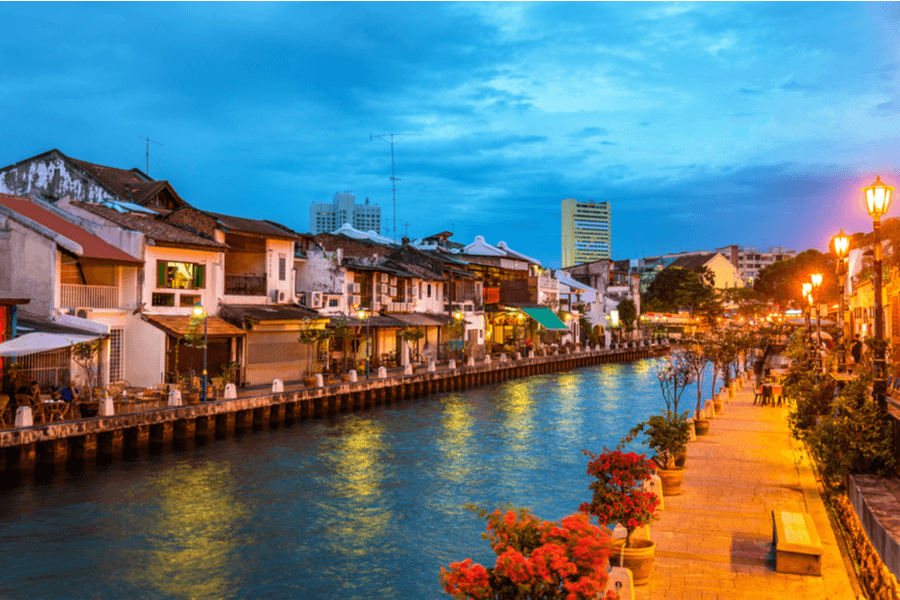How To Get Second Citizenship in Asia
October 17, 2022
Dateline: Kuala Lumpur, Malaysia
While designing their offshore strategies, many of my clients ask me where they can get second citizenship in Asia. The matter pops up often enough that I thought it worth addressing here.
I can see why there is an appeal to getting citizenship in Asia. On the one hand, people hear about all the investment opportunities or the Asian lifestyle where they can have sophisticated living in Singapore and laidback living in Thailand.
Sometimes I’ve been the direct source for making them interested in living there as well, given that I often talk about life in Malaysia and how there are many tax-free countries in Asia.
But I will be blunt with you – there aren’t very many citizenship opportunities on the continent.
Yes, there are second residence opportunities, but not all residence programs lead to citizenship.
As a general rule, Asian countries have yet to adopt the modern paradigm shift that you can be of any ethnicity and be a citizen of any given country. In general, once you’re considered their citizen, Asian countries tend to expect loyalty and sacrifice, regardless of where you live.
So, in this article, we will discuss the available options for naturalization and whether it is even worth it to pursue citizenship in Asia.
DO YOU EVEN WANT AN ASIAN PASSPORT?
The average person, regardless of their net worth, is not likely to change countries during their lives. And if they do, they are often going to move between countries that share similar histories, culture, government policies, etc. (for example, internal EU migration).
As such, there are a lot of misunderstandings of the terms that are commonplace in the offshore industry. So, let’s go back to first principles.
There’s a difference between being a permanent resident of a country and having undergone the naturalization process to gain second citizenship.
Being a permanent resident just means that you are allowed to live in the country for a specific (or indefinite) period of time, despite not being considered a citizen of the host country. Residence may come with some additional rights, such as being able to use certain government services, but by and large, just think of it as being allowed to be a permanent tourist in the country – often with few tax consequences.
Naturalizing and gaining citizenship, on the other hand, comes with benefits as well as obligations. In many countries, and especially in Asia, you can’t be a dual-citizen, as it’s perceived that you should only be loyal to one country. Furthermore, you will often have legal obligations and expectations which you didn’t have before.
So, sometimes you can gain far more benefits from not going through the naturalization process and remaining a permanent resident while retaining your original citizenship. Because, to tell you the truth, most Asian countries only offer weak passports, and several of the countries on the continent tend to exert far more pressure on their citizens to conform than you’re used to.
That said, let’s go through Asia and look at the broad passport options there:
- The Middle East: This region includes most Arab countries. They generally don’t offer passports, and frankly, many countries in the region do not excite me. Even if they were offering second citizenship for free, I wouldn’t take them up on their offer. However, there are countries like the UAE, which are perfect for living and enjoying a tax-free luxury life.
- Central Asia: This region is primarily populated by former Soviet states, as well as a few Arabic nations. These countries do not typically allow dual citizenship, and the passports themselves don’t offer much value-added. It’s unlikely that you would be able to live your day-to-day life properly without learning the local dialect and/or Russian.
- South Asia: This region includes countries like India, Sri Lanka, Bangladesh, and others. Generally speaking, the passports are usually quite limited and I wouldn’t want them anyway. However, there’s a rumor that if you invest $3 million in Bangladesh, they’ll give you the passport.
- East Asia: This region is composed of countries like Taiwan, China, South Korea, and Japan. Unless you’re ethnically from this part of the world, these are very difficult countries to get citizenship. China, for example, makes it impossible. And Japan isn’t super emigration friendly, though the passport is rather good.
- Southeast Asia: This region is home to Vietnam, Cambodia, Myanmar, Thailand, Singapore, Malaysia, and other countries. Again, they don’t tend to allow dual citizenship and are difficult to naturalize. And outside of Malaysia and Singapore, most of the countries in these regions also have weak passports.
Perhaps it seems that I’m painting an overly grim picture of your chances of gaining citizenship in Asia, so here’s a list of countries where you could feasibly get the passports, though many come with considerable caveats.
ASIAN PASSPORTS YOU CAN ACTUALLY GET

SOUTH KOREA
If you’re an investor, you can start a business, hire people, invest in government bonds, and become a permanent resident of South Korea. If you live there for five years and you speak Korean, you can then obtain citizenship, but you must renounce other citizenships.
It’s a good passport, but there are some country restrictions that you can’t visit, which certainly brings complications to westerners who believe they can go wherever they pleased, even if it involves a visa.
I have recommended South Korea as an underrated location in the past, so I definitely endorse it as a place to live in. But to get South Korean citizenship? Not so much
Whether this trade-off is worth it to get South Korean citizenship depends entirely on what you value and plan to do.
SINGAPORE
The agile nation-state where a fifth of the population is considered dollar millionaires certainly attracts a lot of attention. But I’m sad to tell you that you missed the boat on Singapore.
It is still technically an option, but even people living there have difficulty getting permanent residence. Singapore citizenship, on the other hand? “Good luck” is all I have to say on the matter. If you have kids there, then maybe you have a shot.
If you’re not in a position to have a child in Singapore, and unless you are among the most successful entrepreneurs, you likely won’t qualify for Singapore citizenship.
Even then, if you are in the naturalization process, you will have to give up your other passports as Eduardo Saverin did many years ago when he renounced his US citizenship to become a citizen of Singapore. So, it definitely involves a high investment both on the personal and economic side of things.
HONG KONG
With all the madness happening in relation to China and Hong Kong nowadays, perhaps this is less desirable by the day.
For now, it remains a good place to do business and it is quite tax-friendly.
However, the process to get a Hong Kong passport is rather convoluted.
Halfway through trying to get Hong Kong citizenship, you end up in a weird limbo where you have to renounce your other citizenship but they still won’t give you a Hong Kong passport.
No two people’s stories are the same and it’s always interesting to hear the hardships people go through while battling bureaucracy to get this particular citizenship in Asia.
I need to stress though how this is pretty much just Chinese citizenship through the backdoor. This is because Hong Kong is not an independent state and it’s slowly getting absorbed by China.
So, I would expect there to not be a major difference between what people colloquially call a Hong Kong passport and a normal Chinese passport over the coming years.
CAMBODIA
There is a nebulous donation option in Cambodia where you give money to the treasury and the king signs off on it, but nobody quite knows how it works. The latest figures on the program are a $250,000 requirement – which is massively overpriced considering the passport’s weakness.
The pricing also increases almost at random and depends on what your original nationality is. They charge Chinese more, for example, because they want to keep them from buying all the land.
So, the option to get citizenship in Cambodia is there, though I’m unsure why any Westerner who ever wants to travel again would pick it as an option.
WILD CARD OPTIONS

These choices are not available for everyone but are worthwhile to mention simply for being a completionist’s sake :
India
If you have Indian ancestry, there are programs where you can get an Indian travel document, or at least the ability to live in India.
Israel
If you are Jewish, Israel will welcome you with open arms. It’s probably the most uncomplicated option in this article if you meet the religion/ethnic requirement.
It’s so straightforward that some Jewish citizens from countries with weak passports, like Russia, have often opted to get Israeli citizenship to get access to unhindered travel and business opportunities. You can read our article to learn more about Israel’s Law of Return.
THE REAL BENEFIT OF CITIZENSHIP IN ASIA
We have crisscrossed the map, West to East, trying to find a way into getting citizenship in Asia. And while there are some options, they are few and far between and come with considerable caveats.
Asia, as a whole, remains a deeply nationalistic continent where your cultural background still holds much sway on whether you have any chance of ever gaining second citizenship in Asia.
But if you can manage it, there are a few benefits of having an Asian passport.
Cambodia, for example, though not a particularly desirable option, does offer the benefit of being able to buy real estate without restrictions were you to become a Cambodian citizen.
This is not uncommon in Asian countries, even for business matters, where the people and the government still draw a clear distinction between locals and foreigners.
But don’t fall for the trap of thinking that just by having the passport, the situation would be all that different. In Japan, for example, there are communities of people who have been living in the country for generations but are still considered foreigners.
The specifics of the restrictions for expats vary from country to country. In Uzbekistan, for example, foreigners can buy real estate but there are conditions in place.
Generally speaking, Asia remains a very protectionist continent wary of foreign influence. That doesn’t mean they won’t allow you to live there and spend your money, but it will be done on their terms.
The only real benefit of having citizenship in Asia is the ability to invest unrestricted – and even then, it’s only for the specific country where you got the passport.
Having said all this, a few years ago, I helped a friend of mine start a property fund in Cambodia. Despite the government restrictions on the property that he can buy because he is not a Cambodian citizen, he still turns a really good profit.
Investing in Cambodia doesn’t necessarily mean you need to have Cambodian citizenship! The same applies throughout Asia. The UAE and Malaysia, for example, allow you to buy real estate but with restrictions.
Countries are slowly opening up though. Every country underwent similar periods in which they opted for a more insular and protectionist approach. However, for the West, you would have to look back at the mercantilists of the 18th century to see that type of mindset.
Asia is going to catch up sooner or later, as trade and foreign capital inflows force them to do so. For now, we have to adapt.
Residence vs. Citizenship In Asia

The primary idea I want you to remember from this article is to not conflate your goals of wanting to live in Asia with wanting an Asian passport. It’s perfectly fine to be living in Southeast Asia with your Malaysian residence permit without having even the faint hope of second citizenship in Asia.
I do so myself, as I think Asia offers good investment opportunities as well as an excellent lifestyle full of fantastic food and great company. But don’t make the mistake of wanting to be a citizen of a country simply because you live there.
You can be a resident of many countries at the same time without having the nation’s passport. In fact, with some countries, it’s actually preferable.
Overall, Asian countries have more restrictions on their citizens than elsewhere. Pick an Asian country at random, and chances are that I wouldn’t want to be a citizen there, even if they offered it to me for free. However, there are a fair few where I would consider living as there are various tax-free countries in Asia.
I’m happy to be a resident and be treated as a foreigner because Asia prioritizes wealth – they want people who will bring money and help the economy. Those who can invest and be entrepreneurs, tend to be welcome.
Conversely, if you look at Latin America and some programs in Europe, they tend to favor permanent tourists as they implicitly ask “Can you support yourself via income, pension, etc?”
If you are a true Nomad Capitalist, then you won’t have an issue living and investing in the Asian continent, regardless of whether you have second citizenship in Asia.


How to Get UAE Citizenship – The Complete Guide
Sovereignty – both national and personal – shapes ambition, secures wealth, and defines status in a shifting global order. For the high-achieving global citizen, acquiring a second or even third passport is more than a lifestyle upgrade; it’s a strategic move in long-term financial and geopolitical positioning. But not all citizenships are created equal – […]
Read more

A Gateway to Central Asia: New Kazakhstan Golden Visa Program for 2025
Central Asia just raised the stakes in the golden visa game. In May 2025, Kazakhstan officially launched a 10-year Golden Visa program in an ambitious move to position the country as a serious contender in the global investor migration space. At a time when other international regions are rolling back their citizenship and residency options, […]
Read more

Top Countries Offering Golden Visas in 2025
Residency is no longer about lifestyle – it’s about leverage In an increasingly unpredictable world, Golden Visas offer something most governments can’t: certainty in exchange for capital. They are more than migration tools; they are strategic safeguards offering residence rights, future citizenship, global mobility, and access to tax-friendly jurisdictions. For investors, entrepreneurs and globally minded […]
Read more





